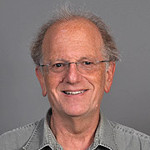In the latter half of the 20th Century, Rhetorical Studies underwent something of a democratization. The term democratization typically conjures images of a collapsing political regime moving toward democratic ideals and practices, thereby making the system more open and accessible. In much the same way, Rhetorical Studies in this period began to question the dominant practices that dogged the discipline for, quite literally, several millennia – and slowly redefined not only what “rhetoric” meant, but also what it meant to study the art. No longer were scholars confined to the traditions of the past – instead, this democratization urged new ways of thinking.
Of course, this is not to suggest that Rhetorical Studies once operated in the same fashion as an authoritarian regime – just simply that for the better part of its history, to engage rhetoric meant to only engage with Aristotle, with secondary and tertiary focus on other Ancient Greek and Roman figures. Although the other forms of rhetorical criticism that are discussed in our article on Rhetorical Studies certainly came into being as a result of this democratization, Genre Criticism is a manifestation that, by and large, was born early in the process.
In this article, we further explore genre and Genre Criticism, briefly articulate the history of Genre Criticism in Rhetorical Studies, and then feature some scholars whose work employs this method of rhetorical criticism. Afterwards, we consider Genre Criticism’s place in Rhetorical Studies today and look ahead to its future.
Further Exploring Genre
As we mentioned in our article on Rhetorical Studies, genre is a “constellation of recognizable forms bound together by an internal dynamic” (Campbell & Jamieson, 1978). These “constellations” can take shape in communicative forms throughout culture. Indeed, while popular connotations of genre include styles of music and film, genre is perhaps best known in its literary and artistic forms – and we typically draw from terminology in literary studies when discussing genre in most instances. Comedies and tragedies, for example, are prevalent in literature as well as film.
In preparing to conduct some form of Genre Criticism, students ought to begin with something they consider familiar – like a genre of music or film. What about your favorite genre of music, for example, moves you the most? Be as specific as possible – is it the subject or tone of the lyrics, the instruments used, the beat, the vocalics of the various vocalists? Then, consider what is common across the genre. What stays consistent? What changes? What does this do or not do for audiences?
Beginning with something familiar can help students attempting to perform a Genre Criticism at the graduate level get in the right state of mind in recognizing the internal dynamics that comprise rhetorical genres. While theorizing a new genre of discourse is certainly exciting and remarkable – consider what has not been said about an existing genre of discourse. What does this gap mean for the genre – or what does this gap say about the study of rhetoric? Without question, exploring genre further can be challenging – but also rewarding.
Featured Scholars Researching Genre in Rhetorical Studies
Functioning similarly to the other modes of rhetorical criticism featured in this series on Rhetorical Studies, Genre Criticism is a versatile tool, sometimes used sparingly, and other times used more thoroughly. As such, some of the scholars featured below may have used a form of Genre Criticism in one noteworthy article, while others have made a career using it. Additionally, not every scholar featured below can be found in Communication Departments. Rather, like their study of genre, these scholars come from an interdisciplinary background and can be found in English, Writing & Composition, and Rhetoric departments.
Although mostly retired, Dr. Miller’s work in both teaching and researching genre continues to be thoroughly influential. In addition to being the founding director of NC State’s Ph.D. program in Communication, Rhetoric, and Digital Media, Dr. Miller penned or edited several essays and books that further advance our understanding of genre in rhetoric. Most recently, Dr. Miller co-edited two books on Genre Criticism – Landmark Essays on Rhetorical Genre Studies (2018) and Emerging Genres in New Media Environments (2017).

With research interests housed at the intersection of health and medical rhetoric, discourses on illness, and gender and technology, Dr. Arduser utilizes Genre Criticism often. Her approach to genre is thoroughly interdisciplinary – she has a background in English Literature, Anthropology, and Technical Communication – and is currently an Associate Professor in the Department of English at the University of Cincinnati. Dr. Arduser’s chapter in the aforementioned book Emerging Genres in New Media Environments (2017) is entitled “Remediating Diagnosis: A Familiar Narrative Form or Emerging Digital Genre?”

The co-editor of Emerging Genres in New Media Environments (2017) with Dr. Miller, Dr. Mehlenbacher is a scholar specializing in science communication and its manifestations in various networked publics. Dr. Mehlenbacher is currently an Assistant Professor in the Department of English Language and Literature at the University of Waterloo in Ontario, Canada. Like Dr. Arduser, Dr. Mehlenbacher employs Genre Criticism often in her work, also bringing an interdisciplinary background to the method and methodology.

Admittedly, most of Dr. Gunn’s research cannot be labeled singularly under “Genre Criticism.” However, his 2012 essay “Maranatha” in the Quarterly Journal of Speech demonstrated both the versatility of Genre Criticism in its traditional application, and its malleable nature in more modern and non-discursive contexts. In this essay, Dr. Gunn analyzed Mel Gibson’s viscerally violent depiction of Jesus’ final hours in The Passion of the Christ and extended genre criticism to what he (and others) call “bodily affect.”

Dr. Devitt studies “everyday genres,” or the genres that people encounter on a regular basis (“Amy J. Devitt,” 2012). In addition to co-editing Landmark Essays on Rhetorical Genre Studies with Dr. Miller, Dr. Devitt has written more than a dozen peer-reviewed essays and books on genre, including Writing Genres (2004) and “Genre: Performance and Change” (with Dr. Miller, 2018). As a Professor in the Department of English at the University of Kansas, Dr. Devitt blends her research with her teaching – and also writes a blog about genre, helping to bridge the divide between the fabled “Ivory Tower” of academia and the general public.

Currently a Professor of Education at the University of California, Santa Barbara, Dr. Bazerman’s research centers on genre and scientific writing as it developed throughout history. Throughout his career, Dr. Bazerman has penned more than a dozen books and has edited over twenty collections on genre and writing. Perhaps most notably, Dr. Bazerman proposed that genre, as we commonly understand it, constitute meaning in the context of other genres. In other words, the lines of demarcation from one genre help set the parameters of another.
The History of Genre Criticism in Rhetorical Studies
While genre was studied in other humanistic academic traditions – namely English and Literature – for some time, it wasn’t until the late 1960’s and early 1970’s that studying genre gained traction in Speech Communication departments across the United States. Many scholars point to Ware and Linkugel’s (1973) essay in the Quarterly Journal of Speech, “They Spoke in Defense of Themselves: On the Generic Criticism of Apologia,” as the inception of Genre Criticism in Speech and Communication Studies.
Indeed, most graduate seminars in Rhetorical Studies will introduce Genre Criticism to students through Ware and Linkugel’s (1973) now foundational essay. In this essay, the authors claimed that instances of apologia, or, apologetic discourse in which speakers defend themselves from charges against their character or actions, to be a universally prevalent form of public address across human history, with particular emphasis on its import in modernity.
Borrowing from Abelson’s (1959) four modes of resolution, Ware and Linkugel (1973) argued that apologetic discourse is a distinct genre of rhetoric in that speakers, when accused of something, will employ one of, or a series of, the four modes in defending themselves. The four modes of resolution are: denial, bolstering, differentiation, and transcendence. With this terminology, Ware & Linkugel (1973) analyzed several speeches, like then-Senator Ted Kennedy’s “Chappaquiddick” Speech and Eugene V. Debs’ remarks at his trial for supposed violations to the Espionage Act, revealing the nuanced ways the speakers orally defended their character and actions.
After graduate students are introduced to Genre Criticism through apologia, most courses will then feature work from Karlyn Kohrs Campbell and Kathleen Hall Jamieson. While Campbell and Jamieson are featured in our article on Presidential Communication Research, their work in Genre Criticism is similarly foundational to Communication Studies. Indeed, Campbell and Jamieson’s (1978) book – and their introductory essay to the book – “Form and Genre: Shaping Rhetorical Action” further delineated genre and rhetoric.
Combining both genre and Presidential Communication research, Campbell and Jamieson (updated in 2008) compiled yet another landmark set of research in their book Presidents Creating the Presidency: Deeds Done in Words. From Inaugural Addresses to war rhetoric, Campbell and Jamieson (2008) set the parameters of the use of genre in Presidential Communication, and thoroughly articulated its uses throughout American history.
Genre Criticism Today
In any Communication Studies graduate seminar, the question a student will inevitably be asked when crafting an essay will be “so what?” Put differently, why does what is being studied matter and what is this scholarship revealing? Indeed, these are questions that every academic must keep in mind when researching and writing.
Perhaps more so than other forms of rhetorical criticism, a common challenge in examining genre in rhetoric typically assumes the form of the aforementioned questions – with the added caveat: what happens when all the genres of discourse are accounted for? In other words – what is the point of Genre Criticism, or what can Genre Criticism reveal that is new, interesting, or unique? When made in good faith, this challenge is certainly warranted. However, bad faith critiques largely ignore the possibility of new modes of discourse or instances when rhetors subvert existing genres.
For example, while Presidential War Rhetoric is a thoroughly researched and well-documented genre – does President Trump’s use of twitter in notifying the public of his decision to conduct airstrikes in Syria after President Bashar al-Assad employed chemical weapons against his own people constitute as a unique subversion to the genre worthy of further examination? Or, what are the rhetorical implications of President Trump – or even future presidents – tweeting their intent to ask Congress to declare war well before formally sending the request to the constitutionally constructed co-equal branch in American government?
A student examining President Trump’s addition – or his challenge – to the genre of Presidential War Rhetoric could take many paths in constructing their argument. Perhaps the student could ground their argument in historical precedent, claiming that presidents have always sought to expand the rhetorical capabilities of their position in the context of war, and President Trump’s use of twitter is just another iteration of that tradition.
Or, working with their colleagues in the quantitative realm, the burgeoning Genre Critic in Rhetorical Studies could first quantify the number of times President Trump tweeted about military action, then perhaps code for instances where his language matched that of previous declarations of war and where it differed, and then draw conclusions from there. Perhaps even doing a comparison between the use of war rhetoric on twitter between former President Obama and President Trump could reveal Trump’s addition or challenge to the existing genre.
For the creation of new modes of discourse, the internet’s rapid ascent cannot be overstated. Indeed, the internet created a mechanism to instantly disseminate culture, forever changing communication and what can be deemed culturally relevant. While seemingly ridiculous at first thought, the advent of memes presented scholars of genre and rhetoric a new mode of communication to examine. Through the mixture of images and text, memes express and articulate culture, constitute a shared identity, and can even make arguments. Although meme creation and proliferation is truly organic, memes contain a strikingly consistent internal dynamic, thereby creating a new genre of discourse to study.
Communication scholars across the board have only started to scratch the surface of this vast new genre of discourse. For Genre Criticism in Rhetorical Studies, there is still much to be said and explored, and students looking to further study genre in rhetoric ought to begin with the seminal essays and books discussed earlier – and should certainly begin to read the research of the scholars presented above. Additionally, the annual National Communication Conference – and the various regional conferences – are a great opportunity for aspiring graduate students to observe the latest research from scholars as storied as Campbell and Jamieson to newly minted graduate students.
Sources and Additional Resources
For more information on genre criticism and its place in rhetorical studies, please refer to the resources listed below.
- Campbell, K. K., & Jamieson, K. H. (1978). Form and Genre: Shaping Rhetorical Action.
- Campbell, K. K., & Jamieson, K. H. (2008). Presidents Creating the Presidency: Deeds Done in Words. University of Chicago Press.
- Gunn, J. (2012). Maranatha. Quarterly Journal of Speech, 98(4), 359–385. https://www.tandfonline.com/doi/full/10.1080/00335630.2012.714900
- Prasch, A. M. (2015). Retelling Watergate: Apologia, Political Eulogy, and Richard Nixon’s “Final Campaign.” Southern Communication Journal, 80(4), 271–292. https://www.tandfonline.com/doi/full/10.1080/1041794X.2015.1045622
- Ware, B. l., & Linkugel, W. A. (1973). They Spoke in Defense of Themselves: On the Generic Criticism of Apologia. Quarterly Journal of Speech, 59(3), 273.
Additional Topics on Research in Rhetorical Studies

This guide provides an in-depth discussion of rhetorical studies, describing the history and significance of the discipline while also providing readers with theories that are useful to understanding different forms of rhetoric and their functions in human communication.

This article discusses the field of critical rhetoric and its importance in the examination and exposure of power dynamics in society. It also provides information on key scholars in the field who study how rhetoric connects to equality, politics, and cultural values.

This detailed article discusses the history and forms of gender criticism in rhetorical studies, and also explains the political, social, and cultural significance of this field of study.

This article explores scholarly approaches to understanding persuasion as material. Explore how scholars have attempted to understand rhetorical discourse as a material thing, and, on the other hand, how material things, like monuments and roads, can be politically persuasive.

This article explains how metaphors are widely used in human communication and understanding, and provides a background on the history and prominent scholarship of this field.

This article covers narrative criticism and the role it plays in culture, politics, and relationships, while also providing examples of prominent scholarship in this field.

Learn about scholarly efforts to understand how communities come to share perceptions about the past and explore the different rhetorical strategies employed in constructing public memory, from monuments to new media.

This article examines the history and impact of social movement rhetorical research, and provides readers with a detailed overview of some of the latest research in the field that is being completed by eminent scholars of social justice and civil rights rhetoric.


